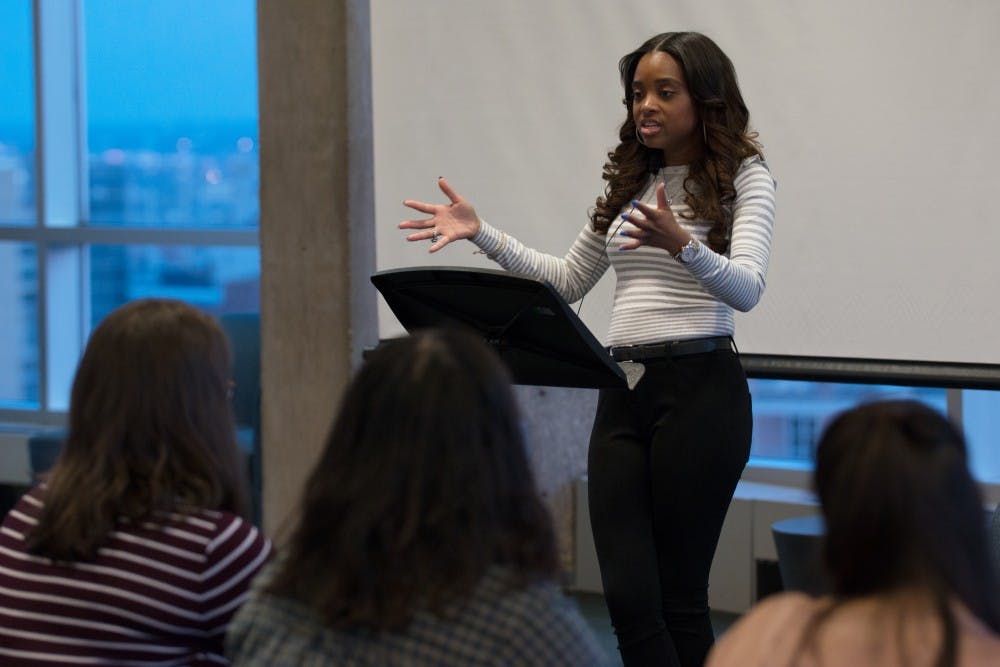Women’s marches in Philadelphia and other cities drew Penn students to the streets in January. On Friday, one of the movement’s national organizers came to campus to advise students on how to continue their activism.
“If your activism is limited to this particular presidency, then you’ve missed the mark already,” said Tamika Mallory, one of the national co-chairs of the Women’s March on Washington, at an event on Friday.
Mallory, the keynote speaker for Women’s Week with the Penn Association for Gender Equity, spoke at an event in the Rodin College House Rooftop Lounge about her experience organizing the Women’s March and her views on social issues. Mallory is well-known for her work as a social justice advocate and a champion for women’s rights issues, reducing gun violence and more.
Mallory worked with others on the Women’s March Board to organize the Women’s March on Washington that drew over 1 million protesters in Washington, D.C. and 5 million protesters worldwide on Jan. 21. She said that for many people, the large turnout was unexpected.
“Leading up to the march, everyone was saying, women can’t do it,” Mallory said. “But hey, you saw what happened. A million-plus [people] ... showed up in Washington, D.C. and five million people came out of their homes across the world.”
Mallory said that the number of people who marched in Washington and elsewhere was inspiring, but that she was worried that many of those people had not shown concern for other civil rights causes, in particular those that affect people of color.
“They didn’t show up for Sandra Bland, they didn’t show up for Eric Garner,” Mallory said, “but because in this moment, everyone was so worried about how they could be personally impacted by Donald Trump’s presidency, everybody showed up in D.C. And for that moment, I felt alone ... because I realized that the people who were there on Jan. 21 to a large degree were not there for me or other brown girls at all. They were there for themselves.”
Mallory also said that the march was challenged more than many others she had worked on in the past. Many people questioned whether the Women’s March had acquired the necessary permits to march, which Mallory said was unusual.
“I have worked with so many men, and no one has ever even asked if we had a permit,” Mallory said, but for the Women’s March “they challenged us every time. What is the march going to be about? What are you going to say? No one’s going to show up, it’s not going to go well ... On everything we were up against some type of battle.”
Mallory added that the success of the march was a testament to how hard the team had worked to bring it about and to the power of women in general.
“On Jan. 21, at the Women’s March on Washington, the world was flipped upside down,” she said. “When women get mad, everything changes.”









